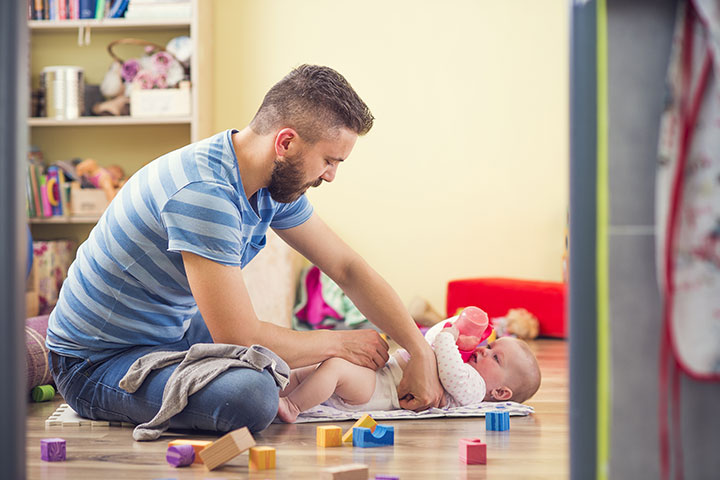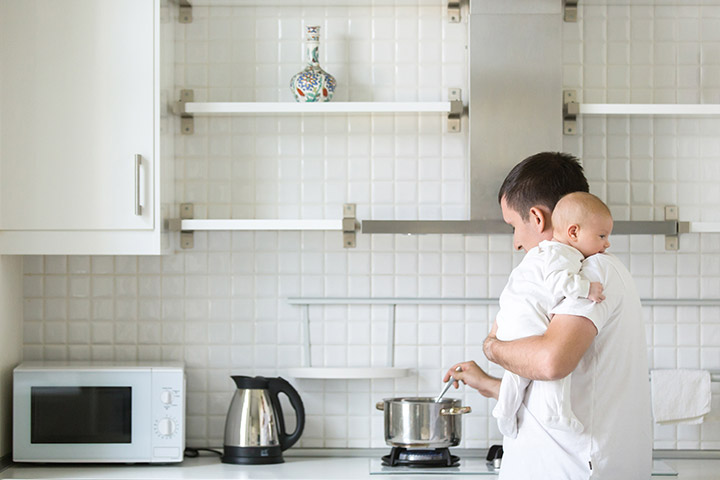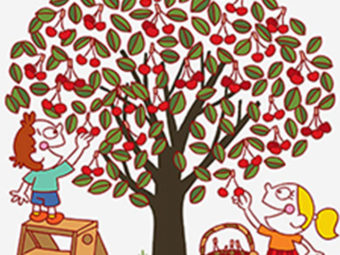
Image: Shutterstock
Congratulations on becoming a father! Fatherhood is a beautiful journey where you learn so many new things about yourself and life in general. Having a little one to take care of, you learn to prioritize your family’s needs over your own. While a lot is discussed and spoken of about the role of the mother, often the importance of fathers gets sidelined and the pressure falls on their shoulders. But in today’s modern world fathers also need to take an active part in raising their children. Gone are the days when parenting was solely a mother’s job. The good news, however, is that most dads these days are eager and more than willing to pitch in and help their partners in caring for their children.
As you embark on this journey of parenthood, there are many things you would need to learn in order to support your children and partner. We have listed some important dos and don’ts that would surely help you in becoming a great parent. Let’s dive in and have a look at them:
1. Make The Effort To Understand Your Baby
Babies give a lot of cues. From crying when in distress to giggling when they see someone they love, it’s lovely to witness. Mothers communicate, help, and manage their babies with the help of these cues. As a new dad, you too can make an effort to learn your baby’s signals, body language, and cues. Understanding your baby’s body language would also help you manage their potty business better. With practice, you’d be able to predict the right moment when they need to have a pee or poop, saving you from having to remove spoiled diapers.
2. Take Turns In Caring For The Baby
Image: Shutterstock
Nursing and caring for the baby is no mean task. If mothers have to do all of this by themselves it can leave them drained of their energy. Take turns in caring for your little one – putting them to sleep, changing diapers, cleaning, and bathing them. As you share these responsibilities with your partner, the challenges would seem more enjoyable than tiresome. As a parenting team, both of you will manage your little world so much better.
3. Don The Apron And Take Care Of The Cooking
Image: Shutterstock
In the weeks after delivering the baby, your partner still is a long way from being fully recovered. In the meantime, she’s nursing your little one too. This is the perfect time when husbands can really show how good a chef and housekeeper they can be too. Jokes aside, your partner would really appreciate this effort from you. It’s common for women to suffer postpartum depression and anxiety immediately after childbirth. Love and care from the partner will go a long way in helping them battle it out with more confidence. The love, respect, and admiration between you two will blossom with this little effort from your side. Way to go for shattering gender roles.
4. Communicate With Your Baby
We spoke about learning your baby’s cues; now, there is a second part to that — your communication. You might not know this, but your baby listens to your voice and makes a connection. It can also help with your little one’s social and communication skills (1). Go ahead and have a full-fledged conversation with your junior. You won’t look stupid. If anything, we all love new dads who baby-talk with their kids!
5. Don’t Hold Your Baby That Way
Which way, you ask? There’s a classic “dad” way of holding your baby — lying on your back, baby lifted high up over your head, facing you. Do you know what this can do to your baby? It will make them puke! Your baby loves this too, and it’s all fun and games until the puking starts. If you thought this was bad enough, wait until mama comes and sees the mess you’ve done.
6. Communicate With Your Partner
The dynamics of your relationship with your partner are bound to change after the arrival of your baby. Priorities change, routines are not the same, and what used to be a “couple thing” suddenly has a tiny intruder. It’s essential to have a healthy channel of communication to deal with all of these changes. Talk about your fears, concerns, accomplishments, and anything else, and make an effort to listen when your partner shares the same.
7. Visit The Doctor Along With Your Partner
Image: Shutterstock
It’s important for new mothers to keep visiting the doctor. Post-birth, mothers are still recovering from the pains of childbirth and need regular checkups. The baby’s health too needs some monitoring, especially in the initial weeks and months. It would be prudent for the father to go along as well. Only by being present with your partner and baby in their medical consultation will you be able to keep abreast of what their state is. They will also feel your love and support by putting in the effort to be with them.
8. Don’t Ignore Yourself
We often forget that fathers too can get tired sometimes. They might not have popped a watermelon-sized human all on their own, but they too have their woes. Mothers are great, but fathers are too. Your family needs your care and support, which can be done only if you take care of yourself first! Get some rest and relaxation when you feel the need for it. Also, don’t deprive yourself of the things that give you pleasure. It’s true that you won’t be able to go on 12-hour nonstop movie marathons or video game sessions like in your younger days. But you can definitely take a little time out every once in a while and enjoy your guilty pleasures.
Keep these things in mind when you help your partner and your child in the first few months after childbirth. It is a difficult time, and they require your support. Here’s to all the dads who make an effort even if they have no clue what they’re doing! What are your thoughts on this? Let us know in the comments below!
References
- Talking to children matters: Early language experience strengthens processing and builds vocabulary
https://www.ncbi.nlm.nih.gov/pmc/articles/PMC5510534/




















